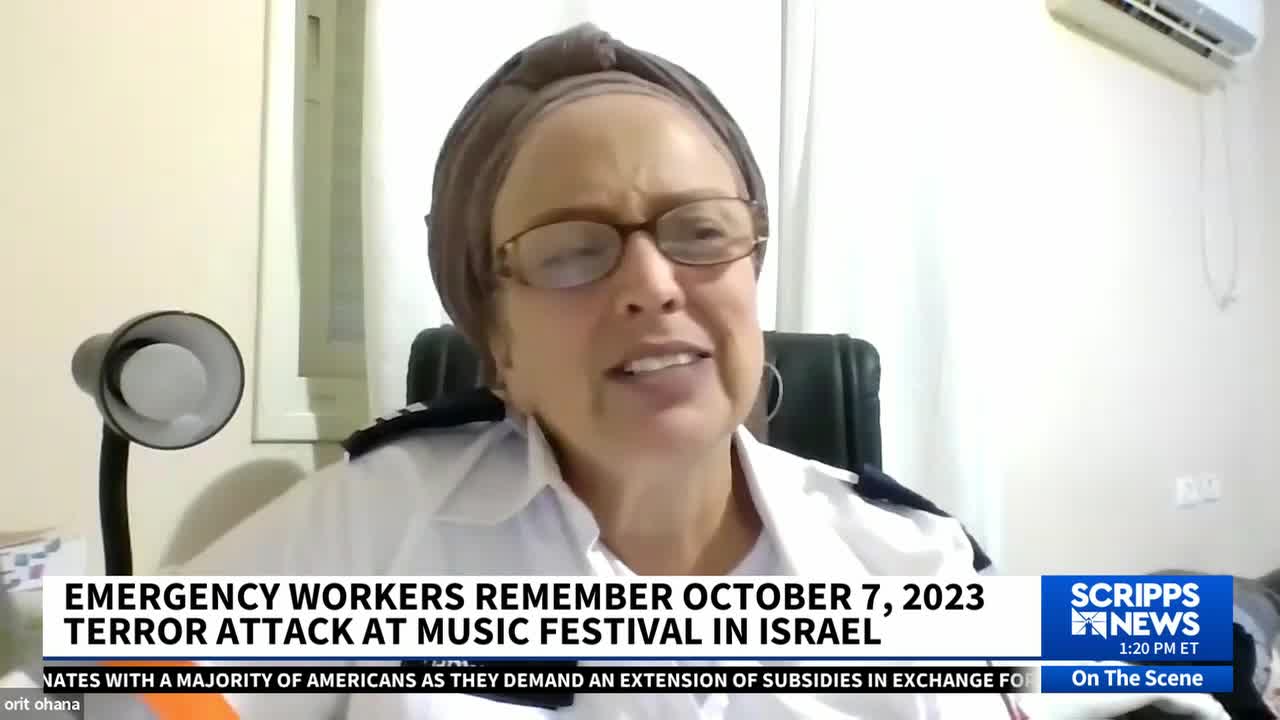Two years after October 7th, Orit Ohana still struggles with the memories.
"I think the average brain can't really realize what happened," she explained. "It's not human. It's not human in any kinds of thinking."
She was having a peaceful holiday morning when the emergency call came. It was the leader of her paramedic team at Magen David Adom, Israel's national emergency response team.
"If he called me, he needs me, it's not a question. And I said, okay, something happened? And he said, the worst things that you could ever dream happened. I said, say, no more. Five minutes I'm in the station," she recounted.
IN RELATED NEWS | Israel marks second anniversary of October 7 attacks as ceasefire talks continue
Ohana drove south, not knowing what she was heading into. She had no idea she'd be driving directly toward the Nova Music Festival site, still actively being attacked by Hamas. Nearly 400 people would be brutally murdered and 44 abducted there. She put her life on the line while she was saving others.
"We knew it is very dangerous, but we didn't think about it," Ohana said. "You just work. You don't think of the fear when you're standing more the fear. You don't think about it."
She spent her day back and forth, picking up people wherever they needed help. She remembers a gravely injured man, shot at least three times. Ohana has no idea if he survived. They then went to an army base. At least twelve bodies were lying right at the gate.
"There was a plastic on them, but you see the hair of the soldiers, the girl's. It was very, very hard to see so many dead people," she remembered.
It was only the next day when she went to clean the ambulance that she realized how horrible her experience was. Ohana says she looks on social media to try to find the people she took and constantly wonders if there is more she could have done.
But what is so frustrating for her, and so many who were there, is the active denial on social media of that day. Some say the day wasn't as brutal as it was. Others say the video and photographs distributed and even livestreamed by Hamas were artificial intelligence.
IN CASE YOU MISSED IT | What we know about the Bibas family, a symbol of Israeli hostages held in Gaza
"I saw that. Nobody can take it from me. Nobody. I was there. I saw the injured people, the bodies. Nobody can tell me that it's not true."
But she says, the outside noise has united Israel and has given her a deeper faith in her people.
"We will never fall down," she said. "Nobody can hurt us, and even if they hurt us, we'll come and go up again and again and again."





